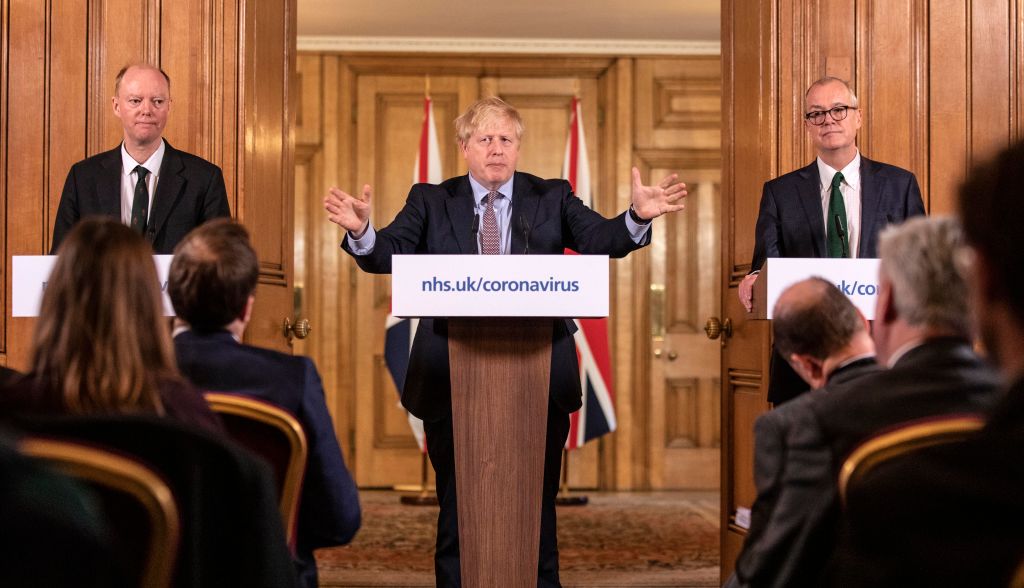The daily coronavirus briefings from Downing Street were wildly popular by one measure, drawing in millions of viewers, but were they any use? Like them or loathe them, it seems that we will be seeing plenty more of them.
Boris Johnson has decided that, from October, the ‘briefings sessions’ should be televised. Journalists and former spin doctors from all sides have been hailing this as a move which will mean more transparency. But we can also expect to see many of the ridiculous stunts that plagued the coronavirus briefings.
Political correspondents often asked the same questions, most seeking a ‘gotcha’ moment in relation to something that should have been done sooner, or better. On occasion they would also use the event to ask questions about non-coronavirus matters. The medical and science experts were much better when they got a look in but seldom got a snappy story out of it. While the local and regional press were often better still at asking specific, trickier questions which people actually wanted to know the answer to. Most interesting of all perhaps were the members of the public, allowed into the secret society in the closing phase of this farce which inevitably always included some hapless person struggling with the ‘mute’ button.
I am not, and never have been, a member of ‘the lobby’ but it is a sort of Masonic gathering of the political hacks with the Downing Street spokesperson. It is almost as ritualistic: steeped in secrecy, they use the language of ‘sources’, ‘unattributable’ or ‘off-the-record’ and other linguistic mysteries of the game. And, like a St James Club, only members are allowed in.
When I was a member of the lowly Industrial Correspondents’ lobby, we would gather after a briefing to discuss what ‘the line’ was. I understand a similar game is often played by the political corps, post the Number Ten gatherings. Johnson wants to bust this wide open by putting his man or woman in front of the camera, fielding questions from hacks who will doubtless be ready for their close-ups too. One precedent that surely will endure from the Covid-19 events will be the supplementary question. It was an error for Johnson to drop these when he was the host. Others, like Matt Hancock, often used them to great effect. What’s more, they added to the public cut and thrust of an exchange between a reporter and a minister. It could be enlightening and, at times, entertaining.
When it comes to televising such briefings, there are precedents, some promising; others precarious. In the United States, Donald Trump has appointed and spiked many ‘on screen’ spokespeople. The current incumbent is a bright, blonde woman, who is a former Fox News hack. In China, the spokespeople make no attempt to hide their contempt for questions or questioners. And who can forget one of the trail blazer: Ian McDonald, at the MoD during the Falklands conflict, his slow unemotional drawl taking us through the victories and tragedies of that distant conflict.
I think, on balance, it is a good move. Candour is the thing. I want to see and hear the questioner and the respondent and to know who they both are. I am more than happy to eschew the faux secrecy of ‘sources’ and the nonsense of ‘we understand’ for the honesty of ‘as you’ve just seen and heard, we’ve been told…’. But who might the Prime Minister appoint as the broadcaster hosting these sessions? Churchill had his Brendan Bracken, an FT man. Wilson, Joe Haines, a Mirror man to his finger tips. Thatcher’s Bernard Ingham served the Yorkshire Post and, ironically, the Guardian with distinction. TV has less of a role of honour today but the former Sky News man, the excellent Joey Jones, had a spell in May’s Downing Street.
The House of Commons has boasted many broadcasters in the past, some more distinguished than others: among them Christopher Chataway, Brian Walden, Matthew Parris, Robert Kilroy Silk, Austin Mitchell, Gloria Del Piero and Anna Soubry. In the current House, there is one former TV presenter who has also served at Cabinet level but the Conservative’s Esther McVey may beg more questions than she answers, both from former fellow hacks and from the Downing Street inner circle.
In the noble effort of keeping Government to account, it is a shame that PMQs has long since descended into a cabaret, despite Sir Keir Starmer’s efforts to make it like a Perry Mason cross examination. What is not in doubt is that the public have a right to know what is being done in their name, how their money is being spent, what is being done to keep them safe and to keep their children educated.
While extra scrutiny is a good thing, of course, this shouldn’t come at the price of losing the one-to-one grillings of the Prime Minister and senior Ministers which often reveal so much. Perhaps these could even be improved by these extra TV appearances of the government’s big guns and enable a return to the standards established by the likes of Brian Walden, Robin Day, David Dimbleby and Andrew Neil. Such a development might even tempt senior politicians back on to the TV shows which they currently avoid.
The press has a right to grill the great officers of state, hopefully in pursuit of fact more than ‘gotcha’ moments to grace their headlines or their ‘bongs’. There is more merit in having a free and frank exchange between press and politicians, in the full glare of the TV lights, than in continuing with the semi-secretive pantomime of the lobby.






Comments